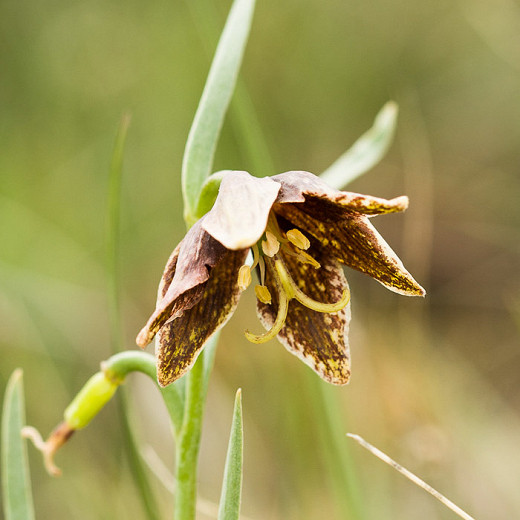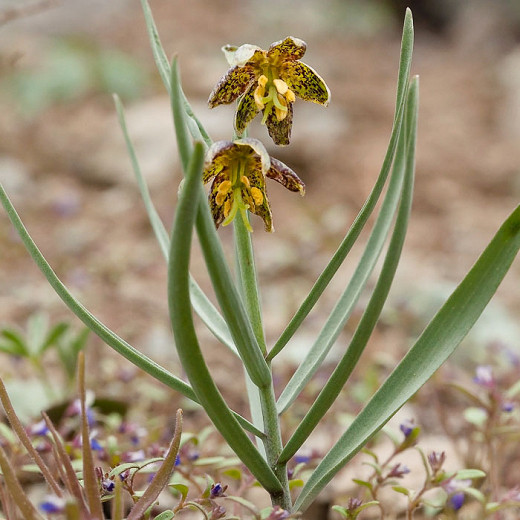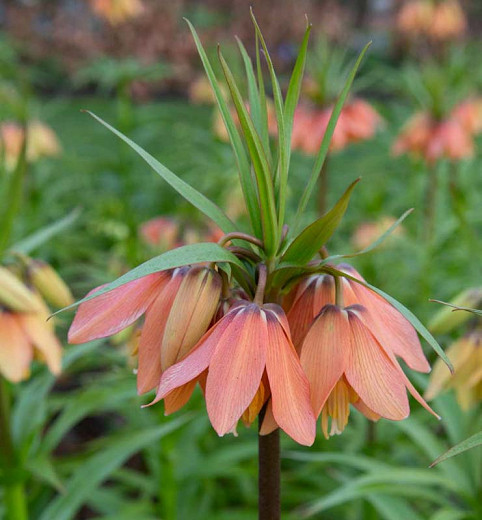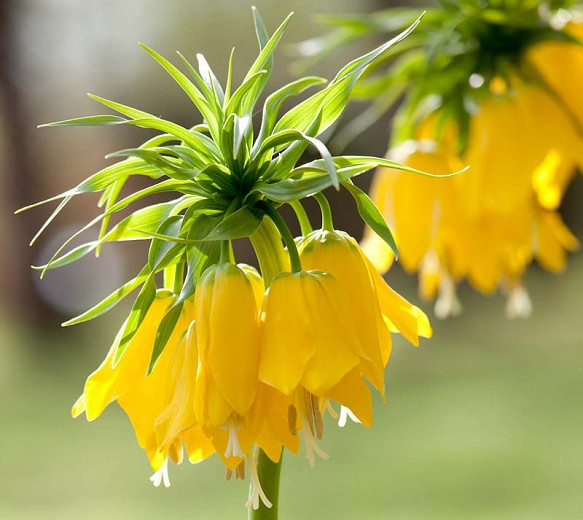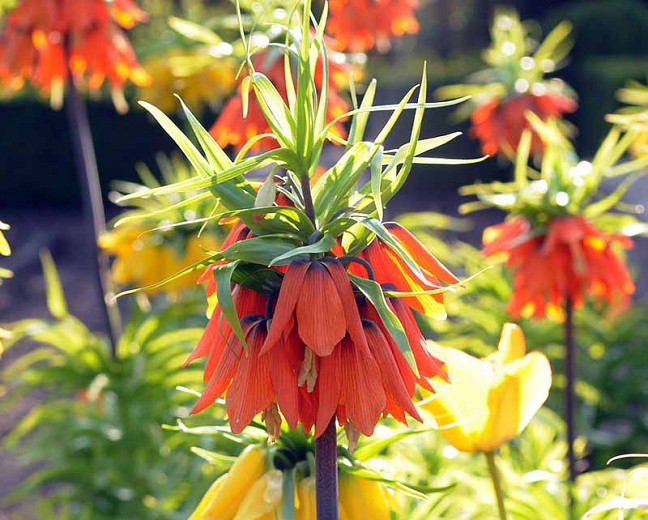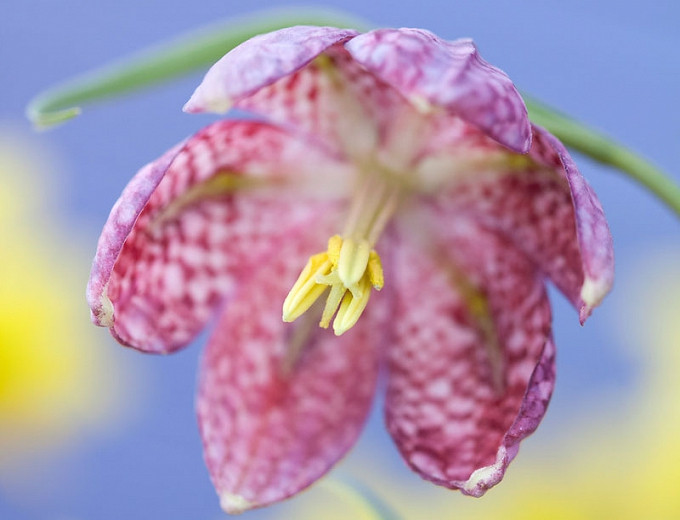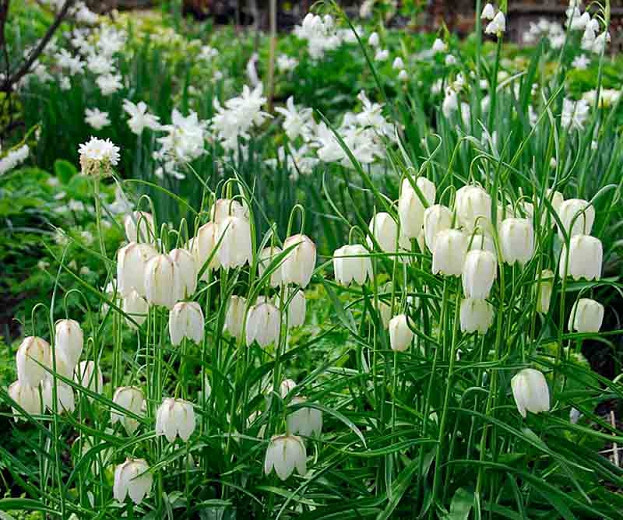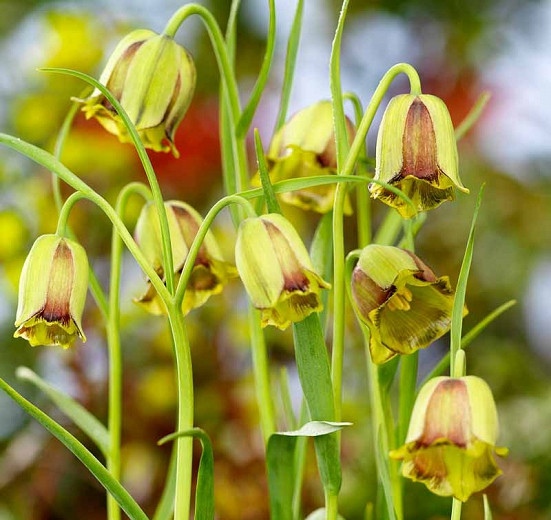Fritillaria atropurpurea (Spotted Fritillary)
Native to the western United States, Fritillaria atropurpurea (Spotted Fritillary) is a charming bulbous perennial with slender, erect stems bearing linear, pointed leaves, up to 5 in. long (12 cm). From late spring to mid-summer, nodding, bell-shaped, creamy-yellow flowers, 1/2-3/4 in. long (1-2 cm), artistically spotted with dark purple-brown can be admired. They are borne singly or in clusters of 2-4 in the upper axils and stem tips. The center of the flower has a central style surrounded by stamens with very large anthers of brilliant gold. The blossoms give way to green, six-angled capsules. Often found beneath trees in moldy leaf litter, this wildflower is easily grown in partially shaded sites, such as under deciduous shrubs or small trees, where there is plenty of pine needle duff covering the ground. Both bulbs and fruiting capsules are edible and are still eaten by western Indians and Eskimos.
- Grows up to 4-24 in. tall (10-60 cm).
- Plant in fall in full sun or partial shade in rich, moist but well-drained soil with organic matter for best results. Intolerant of wet when dormant.
- Charming in groupings in humus-rich damp soils under trees and shrubs.
- Propagate from seed, sown in pots in a cold frame in autumn. Needs exposure to winter cold for germination in spring. Divide offsets in late summer.
- Native to Western North America – California to Oregon, North Dakota, and New Mexico.
Requirements
| Hardiness | 5 – 9 |
|---|---|
| Plant Type | Bulbs, Perennials |
| Plant Family | Fritillaria |
| Exposure | Full Sun, Partial Sun |
| Season of Interest | Spring (Late)Summer (Early,Mid) |
| Height | 4" – 2' (10cm – 60cm) |
| Spacing | 3″ (7cm) |
| Depth | 2" – 3" (5cm – 7cm) |
| Water Needs | Average |
| Maintenance | Low |
| Soil Type | Chalk, Loam, Sand |
| Soil pH | Acid, Alkaline, Neutral |
| Soil Drainage | Moist but Well-Drained |
| Characteristics | Showy |
| Native Plants | United States, California, Midwest, Nebraska, North Dakota, South Dakota, Pacific Northwest, Idaho, Oregon, Rocky Mountains, Colorado, Montana, Utah, Wyoming, Southwest, Nevada, Arizona, New Mexico |
